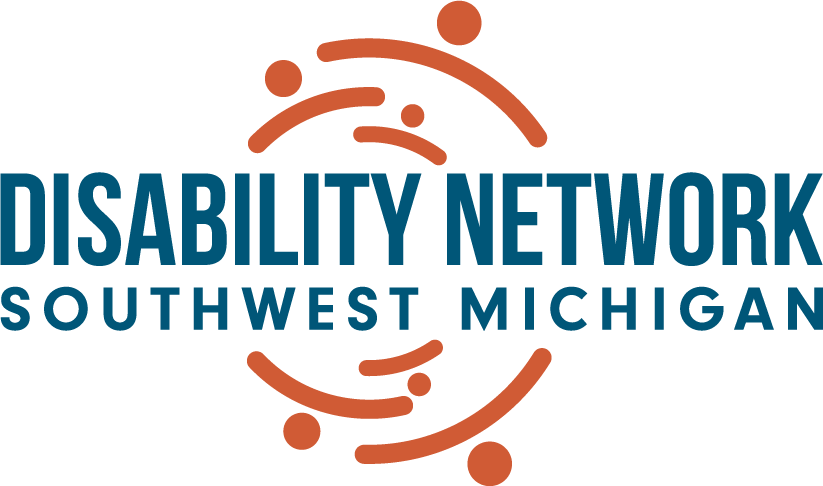
Many young adults with disabilities are being denied access to an education due to misinterpretation of the laws that govern their rights. Much of this stems from the high percentage of students with disabilities who drop out of high school and enroll in an Adult Education program to complete their schooling. Unfortunately, there is a common misconception that the laws that protect a student’s right to an education in a traditional K-12 school do not apply in Adult Education; this is not accurate.
Background
The Individuals with Disabilities Education Act (IDEA) is a federal law which requires school districts to have a process for identifying students up to the age of 22 who may be eligible for an Individualized Education Plan due to a disability. In Michigan, the law has been extended to age 26. An Individualized Education Plan, or IEP as they are commonly referred to, is a legally-binding document which outlines the instruction, accommodations, modifications, supports and services to be incorporated in a particular student’s education so that they may receive a free and appropriate public education, as required by law. Typically, a student will qualify for an IEP if they have a disability which negatively impacts their ability to learn. A student’s IEP may include provisions such as one-on-one tutoring, access to a social worker or occupational therapist, small group instruction, headphones for noise-cancelling, shortened assignments, or any number of other provisions specific to the student’s needs.
Where the problems lie
In Michigan, students eligible for an IEP retain their right to have one up to age 26 regardless of whether they are in a traditional school setting or Adult Education. There are three primary factors contributing to the confusion around IEPs in Adult Education.
The first and most problematic issue is that, in Michigan, two separate state entities have obligations to provide services to Adult Education IEP students. The Department of Labor & Economic Opportunity (LEO) oversees Adult Education and is responsible for general education; and the Michigan Department of Education is responsible for assuring additional IEP obligations. These two departments operate separately with different priorities, different budgets and different funding sources, making collaboration and compliance much more difficult for both.
The second factor is the widely-held belief that the IDEA only applies to students receiving instruction in a K-12 environment and not in an Adult Education program. This is incorrect; the IDEA covers the content of a K-12 education but is not limited to that specific environment.
Finally, there is a misunderstanding of when a student’s entitlement to an IEP ends. Under IDEA and state regulations, there are only three scenarios where a student is no longer entitled to an IEP:
- Revoked Consent – the student (or their parents if they’re under the age of 18) signs a document stating they no longer want an IEP
- Aging Out – when the student reaches the age of 26 prior to September 1st of the school year
- Achieving a high school diploma
The time for change is now!
Fortunately, there have recently been several promising developments that may lead to Adult Education students with IEPs being more fully supported.
In August 2020, the Michigan Department of Education issued a document titled “FAPE in The County Jail” (FAPE stands for Free & Appropriate Public Education) which included a section stating that under IDEA and state regulations, students with IEPs retain their educational rights while incarcerated in a local county jail. This guidance supports the continuation of IEPs outside the traditional K-12 environment. In February 2022, the Michigan Department of Education issued another statement within the “Child Find” program which states clearly that under IDEA and state regulations, eligible students enrolled in Adult Education programs retain their rights to an IEP. This should clarify the issue once and for all – time will tell. However, it’s risky to leave it to chance that Adult Education programs throughout Michigan will suddenly change their ways; public support is needed to ensure real change happens.
Universal access to education for all is essential. The level of education a person receives has a significant influence on their ability to obtain employment and their earning potential which in turn directly impacts their access to basic needs such as housing, food, and healthcare. When individuals thrive, the communities they live in thrive as well. It’s time for all Adult Education students with IEPs to receive the services, supports, and instruction they need to be academically successful.
Ways You Can Dare to Impact Change:
- Contact your school district’s Director of Special Education and ask how the district assures IEP implementation in Adult Education.
- Contact the Director of your local Adult Education provider and ask how the Adult Education program assures IEP implementation.
- Contact Disability Rights at 800.288.5923 if you have questions or concerns regarding the responses you receive from the district or Adult Education provider.
Resources on the topic:
- Video Webinar: IEP 101 (Michigan Alliance for Families)
- Presentation: Workshop State Complaints (Michigan Alliance for Families)
- Website: Students with Disabilities: An Advocates Guide
- Website: Special Education Topics, Services and Products – Wrightslaw
Note: This article was written for our DARE to Impact Change publication which provides Disability Advocacy, Rights & Education. Follow this link for more info and to subscribe to our DARE to Impact Change e-publication.
